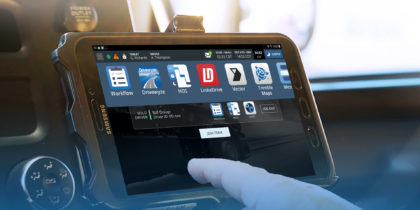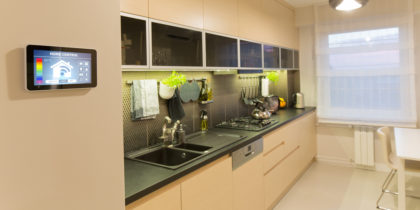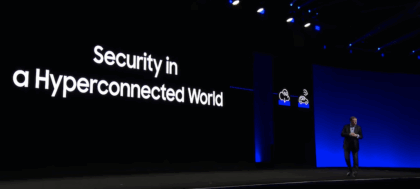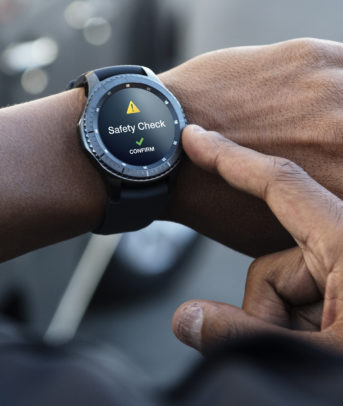Google has announced that it will support physical beacons in its Google Chrome for Android browser, a move that will further enmesh the mobile experience in the physical world. The announcement gives a big boost to beacon technology, which has already been generating excitement in verticals such as retail, hospitality and finance.
A beacon connects physical objects with digital devices. Designed with a deliberately short signal, beacons can leverage proximity to project digital information toward mobile users at strategic moments of high interest and immediate availability. In its announcement, Google cites a middle school that is using beacon technology to circulate class notes and school news. It also points to the Golden State Warriors, who use the technology to present video content to basketball fans.
Digital Meets Physical
Support for beacons within Chrome for Android comes as part of what the company calls the Physical Web, a discovery service driven by low-energy Bluetooth connectivity. In this paradigm, objects seek out nearby mobile devices, triggering a permissions message to the user. Once notified of the opportunity, users may choose to turn on access to the Physical Web, at which point they receive a list of all nearby beacons. These beacons will broadcast relevant URLs, bringing consumers a range of information relevant to their immediate location.
This information may take a number of forms, and will likely be a key business driver for enterprises investing in mobile-enabled enhancements to the customer experience. Whether through digital signage, couponing or a variety of other interactions, beacon technology will be a significant force in attracting and engaging new customers in the years to come.
Some examples across various verticals may include:
Hospitality: A beacon could broadcast location information, guiding guests to their rooms or directing them around the property. On the back end, beacons could simplify record-keeping for cleaning staff, enhancing productivity.
Retail: In a survey by Retail Systems Research, 70 percent of retail leaders described beacons as a high-value technology. Beacons in retail might issue digital coupons, direct customers to in-store deals or create on-the-spot sales for recognized loyalty members.
Banks: Beacons could be incorporated into the branch experience, perhaps by delivering relevant information on banking opportunities as customers wait to be served. Or, they could skip the wait entirely — a beacon could assign a customer a queue number, enabling guests to check out loan literature while awaiting an automatic notification that their turn to be served has come.
The integration of beacon connectivity into Google Chrome for Android has grown out of Google’s Project Eddystone. Beginning in mid-2015, Eddystone emerged as the driver of the company’s new open Bluetooth Low Energy beacon standard. Using a feature called Ephemeral Identifiers (EIDs) to ensure a high degree of security, the project offers a special API to help speed the efforts of developers using the standard. Presently at least 20 manufacturers are reported to have devices compatible with Eddystone.
As a part of Google’s Physical Web, the integration of beacon recognition into Chrome for Android offers a novel way for mobile users to connect with their surroundings. Once developers begin to explore this marriage of beacons and mobility, and start to innovate around this new form of connectivity, any number of interesting business outcomes could emerge. For Android users, easy access to beacons via the Chrome browser could deliver immediate local discounts and other information. Businesses in turn would have a broader opportunity to target users with a high degree of specificity.
Ongoing Research
In a further effort to move the needle on this notion, Google has created an Internet of Things Technology Research Award Pilot to address such issues as interoperability, privacy and the management of interactions. The company has offered university researchers the chance to take part in four- to eight-week experiments to generate academic support for its real-world-meets-mobile programs.
Within the evolving Internet of Things, Android-based mobile devices and beacon technology together hold great promise, both for consumers and also for the business community. When the real world and mobility come together — as with beacon-enabled Chrome for Android — a new world of possibilities opens up across the commercial world both in general and within specific verticals.
Share your insights on how beacon technology can help businesses connect with their customers in the comments below.






